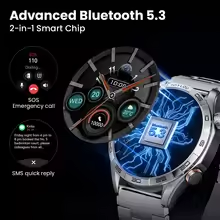Table of Contents
1. Introduction.
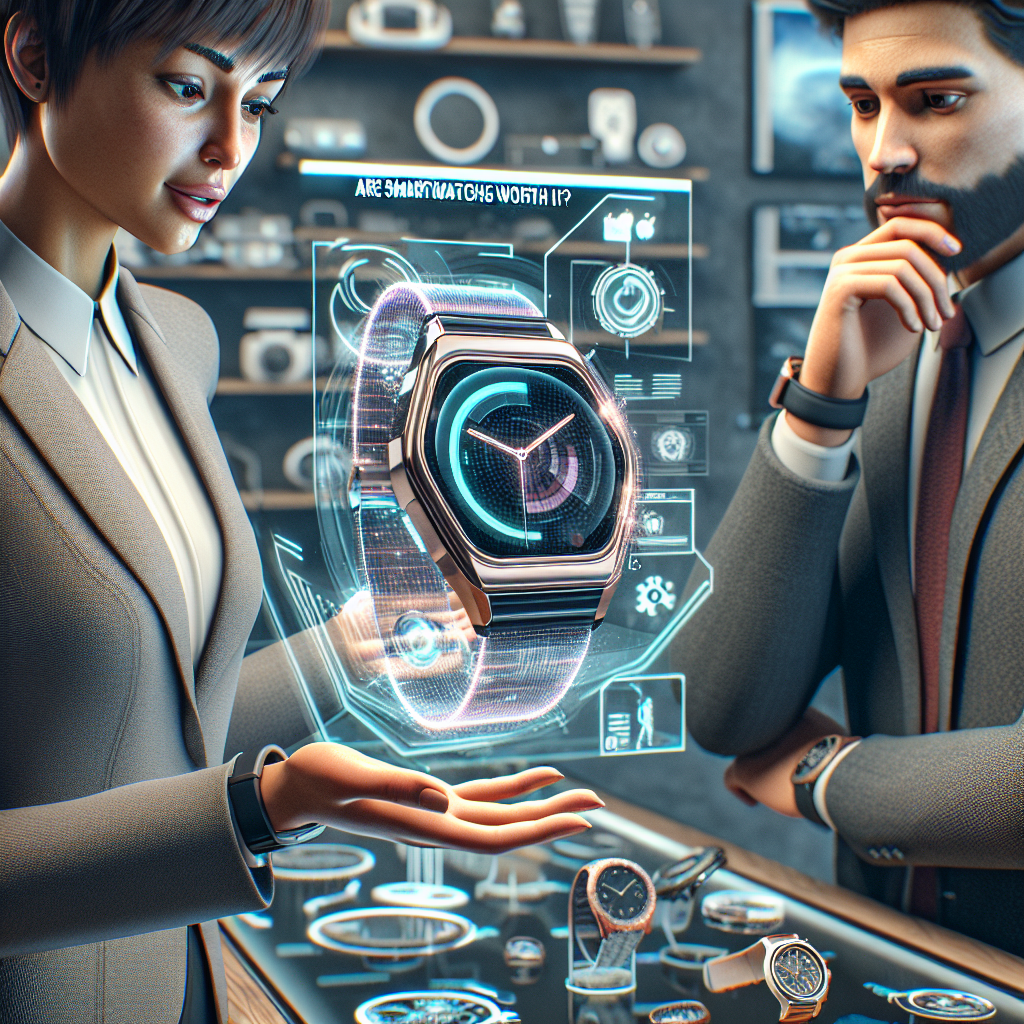
Are smartwatches worth it In recent years, millions of people worldwide have been wearing smartwatches, which have transformed from being a niche technology to becoming mainstream lifestyle devices. By using these small wearables, you can effortlessly manage your daily routine and emails on the go, much like a smartphone. Increasingly, smartwatches are becoming more fashionable, stylish — and in some cases even feature-richer.
Smartwatches have become a global trend in wearable technology. Why? Apple, Samsung, Garmin and Fitbit also update their models every year with new features that include improved health tracking, longer battery life and closer integration with our digital lives. Despite all the hype, many consumers are still questioning the value of smartwatches.
The abundance of choices and prices makes it a matter of concern. Why? Smartwatches are not universally useful, and some individuals simply cannot justify owning one. Why? Smartwatches can transform the lives of some by serving as a personal fitness tracker, communication device and health monitor. It could end up being a random possession in the drawer for some.’
We’re going to break down everything you need to know before you make a decision here. Let’s begin by stating that we have already discussed smartwatches and how they stand out from other wearable gadgets. Following that, let’s examine the advantages and disadvantages of having one.. Our discussion will encompass factors such as the reasons for purchasing a smartwatch, whether it’s necessary or not, and its potential longevity. Here are a few of the most highly recommended current smartwatches.
By the end of the day, you’ll be able to make informed decisions about whether a smartwatch is what you want it to be and how much more affordable. Let’s dive in.
2. What Are Smartwatches?
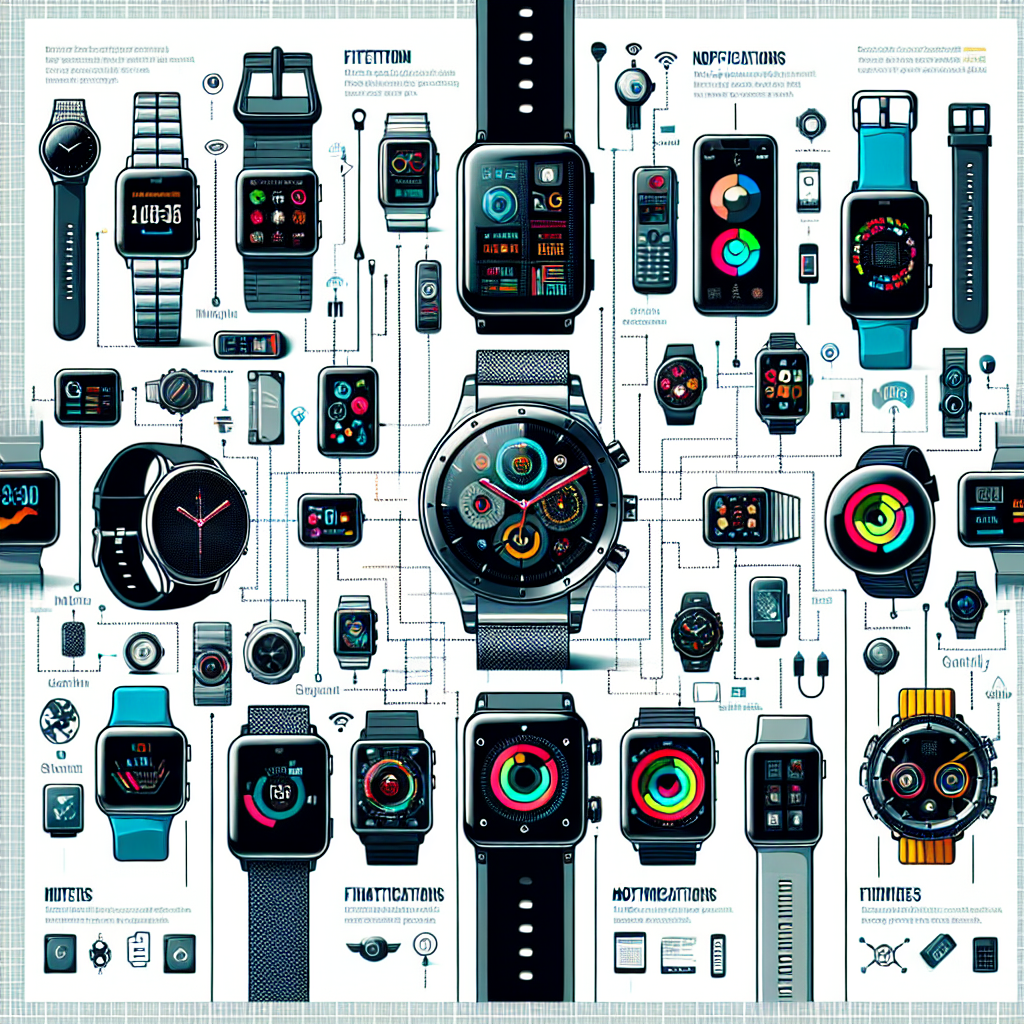
Wearable digital gadgets, such as smartwatches and watches, can be worn on the wrist for enhanced capabilities. Smartwatches function as a complete smartphone, providing fast access to notifications, calls, and applications. Why is this so? They have evolved into something more than just a second screen display.'”. Smartwatches are now essentially miniature computers, packed with sensors, processors and custom software that help users stay connected, active and well-organized.
The majority of smartwatches communicate with smartphones through Bluetooth or Wi-Fi, which facilitates the synchronization of data and notifications. Without having to remove your phone from your pocket, you can now use it to read text messages, answer phone calls, play music and even check emails…. Many models are highly suited for fitness tracking and health monitoring, as they come with GPS, heart rate monitors, accelerometers (such as in cars), and ECG sensors.
A distinction must be drawn between smartwatches and fitness trackers. Why? Smartwatches differ from fitness trackers in that they provide a range of functionalities, including third-party apps, mobile payments, voice assistants, and the ability to customize watch faces. This is particularly important due to their proximity to public areas and lack of fitness tracking features. Smart devices and fitness trackers are interchangeable in high-end models like the Apple Watch or Samsung Galaxy View, resulting in a separation between both.
Besides traditional analog watches, there are also hybrid smartwatches that have additional features such as step tracking and notification vibration notifications. For users who prefer a classic, tech-forward approach, these are the perfect match. The.
Essentially, smartwatches can be your go-to companions for productivity, health awareness, and connectivity. The tools are becoming more popular among professionals, fitness enthusiasts, and anyone who wants to simplify their digital world.
3. Benefits of Smartwatches.

With the rise of smartwatches, they are now a practical tool that can enhance everyday life. Why is this so? Smartwatch – whether you’re a fitness fanatic or just plain geeky and in between.
1. Health & Fitness Tracking.
Smartwatch users are drawn to the health and fitness features that make them a great choice. Most smartwatches are equipped with heart rate monitors, step counter compass, calorie count processors and sleep analysis functions. Modern devices provide a range of functionalities such as electrocardiogram (ECG), blood oxygen monitoring, and skin temperature monitoring. By using these tools, users can track their physical health and identify any irregularities, as well as work towards achieving their fitness goals. Individuals who are coping with chronic ailments or engage in regular exercise can benefit from this.
2. Convenience & Connectivity.
With a smartwatch, you can receive calls, texts, notifications, and reminders in real-time. There is no need to grab your phone every time you receive a notification. From your watch, you can use voice assistants such as Siri, Google Assistant, or Bixby to schedule events, timers and control smart home devices….
3. Navigation & Travel.
The built-in GPS on smartwatches makes it possible to navigate while walking, cycling or even going for run. The provision of real-time directions and route tracking is particularly beneficial for travelers and outdoor adventurers.
4. Productivity Boost.
Smart watches are designed to help you manage your time more efficiently.? They provide access to calendar events, email previews, reminders and voice replies. Several models come with apps that facilitate note-taking, to-do lists, and work notifications, aiding in your productivity.
5. Style & Customization.
The latest smartwatches are both fashionable and functional. They have a range of styles to suit everyone from the sporty to the sophisticated, with adjustable straps, dial-out options, and high-quality construction materials.’
In essence, smartwatches are a great investment because they provide optimal health at reasonable prices and allow for flexibility. The.
4. Drawbacks of Smartwatches.

While smartwatches are great for a reason, they’re not the ultimate way to save time and money. Despite their potential benefits, they have some limitations as with all technology. By examining these negative aspects, you can determine if a smartwatch is the right fit for your lifestyle and preferences.
1. Battery Life Limitations.
Battery life is one of the biggest complaints people have about smartwatches. It can be challenging to charge a smartwatch that boasts advanced features, like the Apple Watch or Galaxy Watch, due to the requirement of daily or every-other-day usage. Garmin and Amazfit devices may have long-lasting battery life, but they usually lack features such as high-resolution screens or advanced app integrations. This can cause issues with later models.
2. Cost vs. Value.
Smartwatches are expensive, especially high-end models.’ By. It is common for prices to be between $200 and $800 or more, depending on the brand and features. A lot of users, particularly those who already own a smartphone and track their fitness routines, may not believe the cost of an additional smartwatch is worth it. Why? The key is to be cautious about using the features you’re paying for.
3. Dependence on Smartphones.
To operate a smartwatch effectively, it is typically required to have paired with. If not included, several features may be restricted or unavailable, such as notifications, app usage, and GPS. Even though there are standalone models with cellular connectivity, they tend to be pricier and offer limited support for standalone apps.
4. Privacy and Security Concerns.
Health and location data are among the most valuable personal details that smartwatches gather. Why? This information could be infiltrated by hackers or other individuals if it is not properly protected. Using devices with encryption, updating them regularly and adhering to privacy best practices is essential for users. Why?
5. Who Should Buy a Smartwatch?

Although smartwatches can be convenient, they are not a requirement for everyone. However, for some people it can add convenience, improve health tracking and increase productivity on a daily basis. In case you belong to any of the categories below, purchasing a smartwatch could be advisable.
1. Fitness Enthusiasts.
For those who exercise, run, cycle, or engage in sports activities, a smartwatch can serve as their go-to tool. Read on for more information. The smartwatch has built-in heart rate monitoring, step counting and GPS tracking as well as exercise analysis. Not only are these models essential for both serious athletes and casual exercisers, but they also provide information on VO2 max, recovery times, and stress levels.
2. Health-Conscious Individuals.
Smartwatches are not just for fitness enthusiasts, but also provide effective health monitoring. To keep track of their overall health, users can use modern models that include ECG, blood oxygen saturation (SpO2), and sleep tracking. They can even warn you of any irregular heart rhythms or potential health problems before symptoms become apparent. The real-time data is of great value to individuals with health conditions.
3. Busy Professionals.
Smartwatches are a useful tool for busy individuals to manage their time effectively. They offer speedy access to calendar reminders, emails, meeting notifications, and voice assistants. By using their wrists, certain models enable you to stay organized and focused while managing tasks and controlling smart devices.
4. Tech-Savvy Users.
Those who enjoy staying up-to-60 years ahead of the latest technology would be well-equipped to own a smartwatch. In certain cities, it can replace your wallet or transit card and also integrate with smart home systems, mobile payments. Additionally,
In essence, smartwatches are designed for active, healthy, tech-savvy people who value functionality and connectivity.
6. Who Might Not Need One?
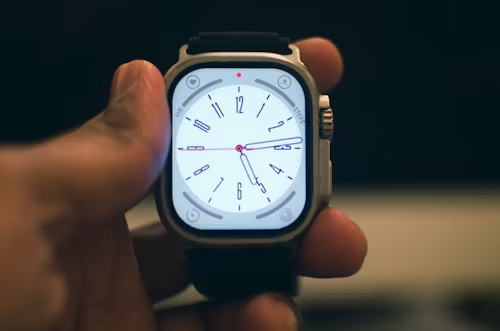
The benefits of a smartwatch are numerous, but they’re not necessary. Certain individuals might not be convinced by the added cost and functionality, particularly if the features aren’t used frequently. However…
1. Minimalist or Analog Watch Users.
For those who prefer the simplicity of a conventional watch, acquiring dozens of smartwatches may seem like unnecessary. A large number of users are satisfied with the traditional style and extended battery life of analog watches, which don’t require daily charging or software updates.
2. Budget-Conscious Consumers.
The cost of smartwatches can be high, especially for top-tier brands like Apple or Samsung. A smartwatch may not be a significant improvement over the cost of acquiring if you already have swiz or eat your way through workouts on foot.
3. Low-Tech Lifestyle.
Smartwatches can be intrusive for those who intentionally limit screen time or disconnect from constant notifications. A smartwatch may interfere with your typical balance of digital detoxing or minimal device use..
If you don’t require advanced health tracking, on-demand connectivity or smartwatch apps then it could be cheaper to buy a simpler wearable
7. Will smartwatches be worth buying in 2025? Request Specs.
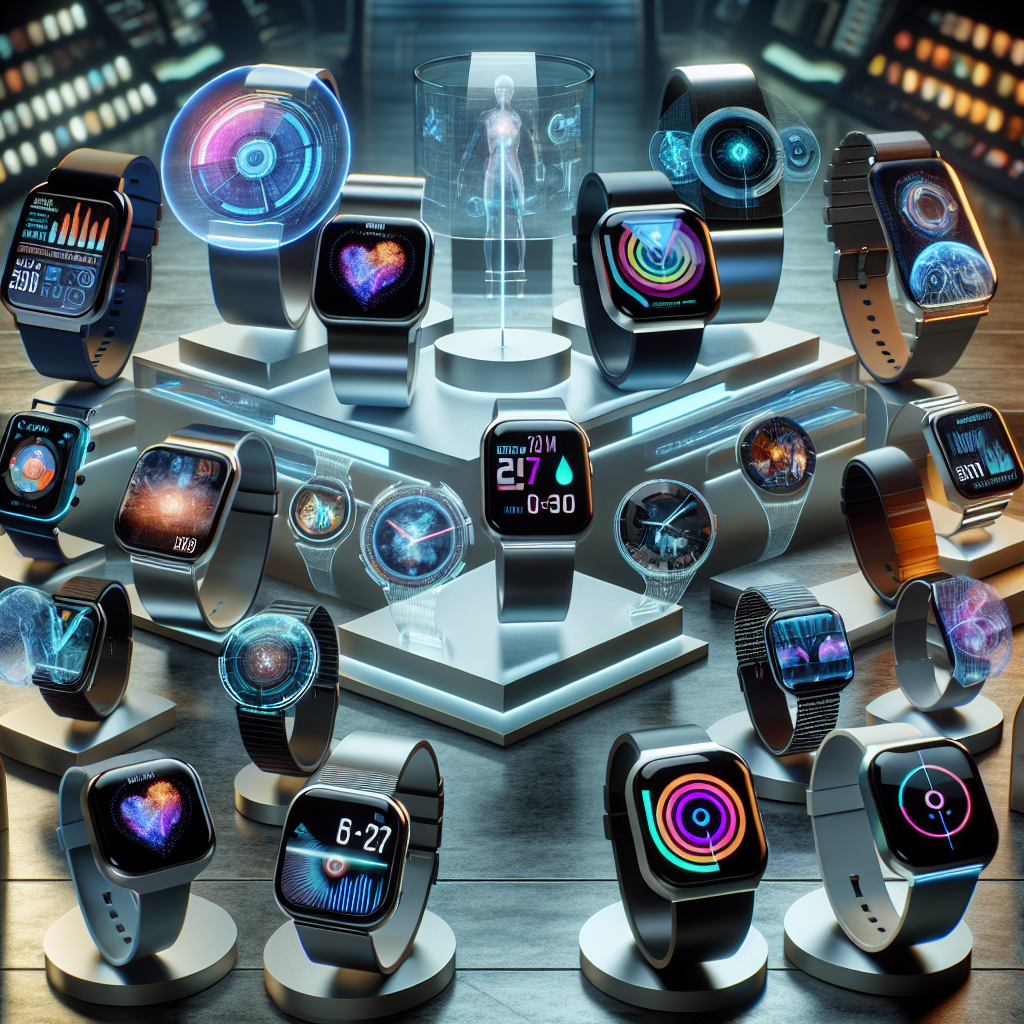
As of 2025, smartwatches have developed into versatile devices that can do more than just show time. Are their benefits worth the investment? Your response will be determined by the importance of health tracking, ease, and seamless integration with your digital life.
A smartwatch with extras that were once limited to medical or fitness gadgets is now widely available. High-tech gadgets have the ability to carry out ECG scan, monitor blood oxygen levels and detect falls as well as give early warning of irregular heart rhythms. Real-time data can be of great value to health-conscious users and those with chronic conditions, and may even play a vital role in life-saving interventions.
Smartwatches can enhance communication and scheduling capabilities from a productivity perspective. Professionals who are constantly on the move can benefit from workflow optimization through the use of notifications, reminder techniques, voice assistants, and fast responses. With the ability to manage smart home appliances, pay without a wallet, and monitor your daily activities, there is more utility.
Even so, smartwatches are still an optional purchase. Mobile devices do not replace smartphones, and some of their functionalities are unnecessary when used as a phone. The worth of a smartwatch is determined by one’s lifestyle. If you are interested in convenience, health, or quick information access, the cost may be justified.
Smartwatches are also becoming more future-proof. Compared to previous versions, they have better battery life, more robust health sensors, and are updated regularly with software updates. Why? Future releases will likely include more personalized and predictive features as the merging of artificial intelligence and wearable tech continues.
For the right user, smartwatches are worth it in the long run by 2025. A smartwatch can be useful for productivity, keeping oneself healthy, or simply enjoying the latest technology. Why?!
8. The Best Smartwatches to Get in 2025.?
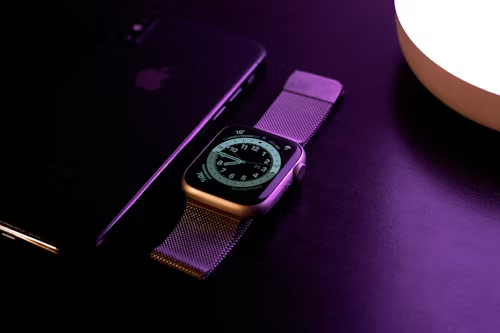
In 2025, the decision of which smartwatch to buy is most influenced by your personal preferences, such as health tracking, style, and battery life. Here are some top picks:
1. Apple Watch Series 9.
Even today, the Apple Watch Series 9 is at the forefront with its comprehensive health capabilities and hands-free integration with the iPhone, as well as its luminous Always-On display. This is a great option for Apple users who want to experience something higher.
2. Samsung Galaxy Watch 6.
Android users will love the Galaxy Watch 6, which has a top-of-the-line fitness tracking function, slender build and excellent battery life. Samsung phones are compatible with it, and it runs on the Wear OS platform.
3. Garmin Venu 3.
For athletes and fitness enthusiasts, Garmin Venu 3 offers comprehensive health metrics with GPS accuracy and a remarkable battery life of up to 10 days.
4. Fitbit Sense 2.
With its affordable price, Fitbit Sense 2 offers the convenience of heart health tracking and stress management as well as sleep tracking.
9. Final Verdict.
Will smartwatches be able to compete in the 2025 market? Your lifestyle, needs, and expectations from technology are the determining factor. Why? Despite their status as outdated gadgets, smartwatches are now essential for health, productivity and everyday use. Why?
Those who value real-time health tracking, fast notifications, or better fitness insights would find the use of a smartwatch to make life easier for them. The inclusion of ECG monitoring, sleep analysis, guided workouts, and contactless payments all contribute to a more connected and health-conscious lifestyle. Calendar alerts, hands-free messaging, and voice aids are all tools that busy professionals can use to manage their time more efficiently..
Nevertheless, for those who value simplicity and minimal technology or have access to an adequate smartphone and fitness tracker, the additional features of a smartwatch may seem unnecessary. The battery life and frequency of updates are also important factors to consider, particularly if you’re not fully immersed in the ecosystem (Apple or Android).
The smartwatch is more than a mere tool for convenience and insight. It’s not even necessary to have one, though… However, for the right person, it can absolutely improve your daily life.’ The. A smartwatch in 2025 is a worthwhile investment for those who are tech-savvy, active, and want to improve their health and lifestyle. Why?
Prior to making a purchase, think about your main objectives. Do you want fitness tracking? Smarter notifications? Stylish customization? Discover which smartwatch is right for you by answering these questions.back to your phone.
In essence, smartwatches are not for everyone, but many of them provide tangible, measurable value. Smartwatch. As AI, health sensors and mobile integration continue to improve every day life, they’ll only get bigger and bigger. Why?
10. FAQs.
These questions can help you make a smart decision about your choices:
1. Are smartwatches good for seniors?
Smartwatches are a great option for the elderly, especially those who have health issues. Fall detection, heart rate monitoring and emergency SOS features are among the many options that can save lives in an emergency. Health-related smartwatches are also a great option for seniors to monitor their activity levels, remind themselves of medications, and communicate with family members.
2. Is it possible to use a smartwatch without bringing my phone?
A certain type of smartwatch can function without a phone, but not all. How does this differ? Cellular-based watches (such as the Apple Watch Series 9 or Samsung Galaxy Watch 6) can receive and transfer data from a smartphone, which is necessary for making calls and playing music. The majority of smartwatches require a phone to function properly, especially for notifications and third-party applications.
3. Are budget smartwatches any good?
Users who don’t require advanced functionalities can consider smartwatches as a solid investment. Fitbit and Huawei are among the popular and reasonably priced devices that provide basic fitness tracking, notifications, and battery life. They may be pricey, but they still offer great functionality without the need for fancy features like an ECG or advanced fitness metrics.
4. Is it possible to use a smartwatch to track my sleep?
It is true that most modern smartwatches track various sleep stages, including light, deep, and REM sleep. Their sleep quality monitoring and advice can help you achieve better sleep. The Fitbit Sense 2 and Apple Watch Series 9, for example, provide detailed sleep tracking and contain relaxation features to help with sleep hygiene.
5. At what intervals should a smartwatch be charged?
Smartwatches charge and use at different rates depending on the model used. It is common for high-end devices such as the Apple Watch or Galaxy Watch to need to charge themselves every day, sometimes even daily.
